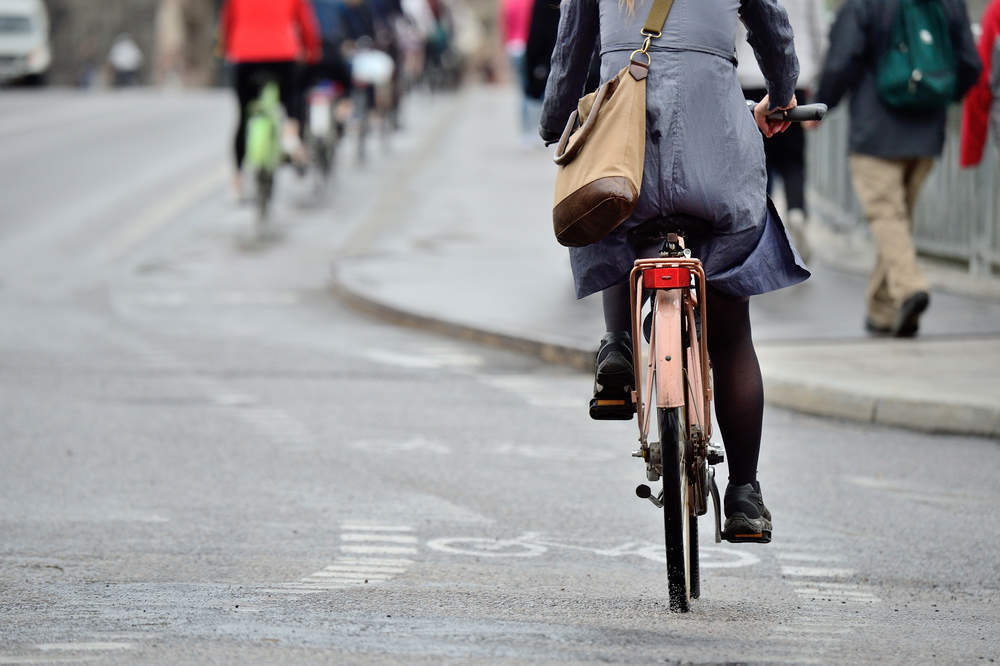
Cycling, especially in big, developed urban areas makes a lot of sense, but there’s a lot still to be done to make sure people are able to get on their bikes and go.
Earlier this month the United Nations (UN) officially declared 3 June to be World Bicycle Day, encouraging its 193 member states to include bicycles in development programmes and policies in order to improve global road safety.
Meanwhile, the 2015 Global High Shift Cycling Scenario study commissioned by the European Cyclists’ Federation showed that cycling can reduce urban transport carbon emissions by 7% and could save the world nearly $6 trillion over the next 15 years.
With that in mind, here are the seven most bicycle-friendly cities in the world according to the so-called Copenhagenize Index and what they’re doing to encourage cycling.
The Copenhagenize Index — which measures bicycle-friendliness in cities around the world — uses 14 factors to judge the most cycle-friendly cities.
These include bicycle facilities, urban planning, traffic calming, perception of safety and bicycle culture, the cities encouraging more frequent bicycle use and having the infrastructure to do so.
How well do you really know your competitors?
Access the most comprehensive Company Profiles on the market, powered by GlobalData. Save hours of research. Gain competitive edge.

Thank you!
Your download email will arrive shortly
Not ready to buy yet? Download a free sample
We are confident about the unique quality of our Company Profiles. However, we want you to make the most beneficial decision for your business, so we offer a free sample that you can download by submitting the below form
By GlobalDataCopenhagen, Denmark
-
1.4 million kilometers are cycled on average every weekday in Copenhagen, with 41% of all trips to and from work and educational institutions taken by bike, according to the US 2017 Annual Bicycle Report
-
Copenhagen has introduced the so-called Bicycle Track Priority Plan 2017-2025, aiming to increase the percentage of commuters who cycle every weekday to 50% by 2025
-
Initiatives in the city include new bicycle tracks, the expansion of existing bicycle tracks and green bicycle routes — these green routes run separately from other traffic routes with less congestion
Utrecht, the Netherlands
-
With over 125,000 residents who cycle between 7am and 7pm every day, 96% of households in the city with one or more bikes, and 50% of households with three or more bikes, Utrecht is easily one of the biggest cities in the world for cycling
-
Utrecht has a large capacity for bicycle parking stations, with 12,000 spots available and is aiming to create 21,000 more parking places by 2020
-
Some 37,000 cyclists use the busiest bicycle route in the city centre daily
Amsterdam, the Netherlands
-
In Amsterdam, the total number of bikes comes to 881,000, with two million kilometres cycled by residents daily
-
The total length of cycle paths reaches 767km, with 513km making up the dedicated cycle paths
-
Bicycle parking spots in Amsterdam come up to around 10,000
Strasbourg, France
-
Strasbourg is the largest cycle network in France, with 560km of cycle tracks and 4,400 bikes available to rent under the Vélhop bike sharing system
-
Bikes are able to be rented short or long term from an hour to a year, including maintenance visits
Malmo, Sweden
-
The Swedish city of Malmo has a public cycle scheme with over 510km of cycle paths
-
Bikes can be used for an hour at a time and can be accessed with a specific card or user ID and pin, otherwise residents can become a member to buy an annual ticket
Bordeaux, France
-
The City Council of Bordeaux implemented a three-year cycling plan with a €70 million investment last year
-
Under the plan, the city expects to raise the number of people getting around the city by cycling from 4% to 15% by 2020
-
Spending will go towards the French city’s cycling infrastructure which includes connections from suburbs to the city centre and the extension of contraflow cycling lanes
Antwerp, Belgium
-
Antwerp already has a popular bike hire system but is doing more to get people in the saddle.
-
Antwerp started its cycling policy plan in 2015 and has initiatives for those wanting to explore and tour the city by bike, as well as a cycling map for tourists looking for a challenge
The UN said that it made 3 June World Bicycle Day to emphasise that “the bicycle is a symbol of sustainable transportation and conveys a positive message to foster sustainable consumption and production, and has a positive impact on climate”.
World Bicycle Day is a part of the UN’s plans to achieve its Sustainable Development Goals by 2030.
The World Cycling Alliance (WCA) and the ECF have been pushing for World Bicycle Day for around two years.
WCA and ECF secretary general Bernhard Ensink said:
Cycling is a source for social, economic and environmental benefits and it is bringing people together. WCA and ECF are extremely happy with this declaration. This UN declaration is an acknowledgement of the contribution of cycling to the sustainable development goals.







